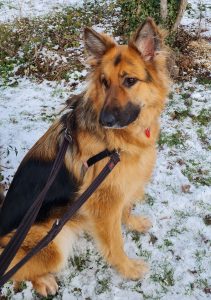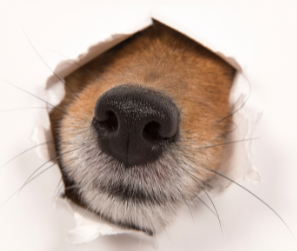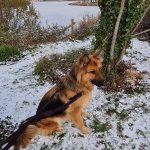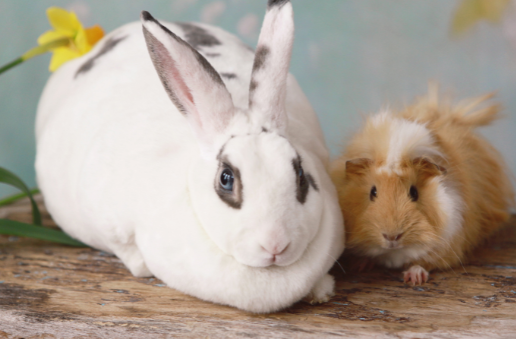How to Keep Your Pets Safe This Winter
The cold weather can be tough on all of us but it is especially tough on our furry friends. As pet owners, it is important to take extra care of our pets during the winter months.
Here are some tips on how to keep your pets safe during the chilly weather.
Grooming
Paw Protection
Additionally, keep the hair on your dog’s paws groomed to stop snow, ice, salt, and sand from adhering to it, tangling, or causing irritation to their paw pads. Every time you enter from outdoors, give your dog’s paws a warm water wash if they are braving the cold barefoot. Sand and salt can get between your toes and irritate their skin (or burn, in the case of salt). If their paw pads are chapped or dry, put some paw balm on them. You can apply some paw balm before starting your walk to add an extra layer of protection. Please note, however, that after your walk, you will need to wash the balm off their paws to get rid of any remaining particles. Alternatively, get your dog some boots, such as the fabulous PAWZ™ dog boots and ensure paws are fully protected.
Fur coats
Keep your dog’s coat well-groomed as a thick, healthy coat will help keep your dog keep warm in wintry weather. Trims are necessary to maintain the condition of your dog’s coat, but you do not want to cut it too short. Dogs with long hair require a lot of fluff to stay warm. Additionally, dogs with double or triple coats, such as Huskies, Malamutes, and Pomeranians, should not be shaved. Their outer coats assist them in controlling their body temperature. They are insulated by their inner coats.
Sore Noses
Even while a dog’s nose does not often get special attention during regular grooming routines, it should in the winter. The dry air can damage their skin and nails and their nose is experiencing the same effects. Your dog may feel uncomfortable and may even lose their sense of smell if their nose is dry and cracked. To help with this, use a nose balm (you can combine a nose and paw balm for this) to keep their nose soft and wet all winter long.
Provide Proper Shelter
One of the most important things you can do for your dog in the winter is to provide them with a warm, comfortable place to sleep. If your dog spends any time outdoors, make sure they have a snug, dry spot to curl up in when they are not active. A heated dog bed or mat can be a lifesaver for older dogs or breeds that are particularly sensitive to the cold.
Bring Your Dog In From The Cold
When the temperature begins to fall, bring your dog inside. Just like humans, dogs can become hypothermic if they are exposed to the cold for an extended period of time. Your dog will not be able to go outside if it is too chilly for you. Bring them inside and make sure they have a cosy, warm bed free from draughts.
Keep Your Cats Warm
A few more cosy spots around the house for your cat to snuggle up in will be much appreciated. Igloo beds are great for winter because they let your cat get cosy and hide … or a cardboard box with a towel to lie on will do.
Litter Trays/Boxes
Even if your cat regularly relieves itself outside, it is a good idea to have a litter tray inside so they will not feel obligated to go outside in inclement weather or when they cannot make a little hole for themselves in the frozen ground. If you have multiple cats, make sure there is a tray for each cat plus one!
Keep Them Active
Just like us, pets can get cabin fever when they are cooped up indoors all winter. Make sure to give your dog plenty of opportunities to run and play, even if it is just in the backyard. If you can brave the cold for a walk or run, even better! Just be sure to bundle up your pup in a warm coat or sweater if it is particularly cold outside.
For your cat, get them some new toys and make sure you play with them frequently. Since dawn and dusk are peak hunting hours, try to play with your cat during those times.
Stay Visible And Keep Walks Shorter
If you must walk your dog at night, take extra safety measures. To ensure you are both visible to walkers and drivers, LED collars, hi-vis leads and coats can be excellent options for your dog. Take a good torch to illuminate the route and after dark, keep your dog on a lead to avoid hidden dangers and to keep them safe.
Also keep your walks shorter if walking in towns to avoid chemical/salt damage to paws.
Taking Care Of Ageing Joints
Older pets may develop tight joints and arthritis, and occasionally colder temperatures can make these conditions much worse. Take meticulous care of your senior pet’s joints, especially during the winter. Check out our range of foods and products to help your pet’s ageing joints. Good foods like Nature’s Way and Canagan senior/mature contain many joint supplements like glucosamine and chondroitin.
Ice-Covered Ponds
When going for walks in the cold, use extreme caution. Excited dogs may be drawn to frozen ponds and lakes but they can easily slip through the ice (or drag you into it) and get seriously hurt in the chilly water. Keep your dog on a lead to ensure their safety.
Watch For Signs Of Hypothermia Or Frostbite
Dogs can get hypothermia or frostbite just like humans, so it is important to be aware of the signs. If your dog is shivering uncontrollably, has blue lips or gums, has difficulty walking or seems lethargic, they may be suffering from hypothermia. If your dog starts to show any of these signs, bring them inside immediately and warm them up slowly.
Frostbite occurs when the skin and tissue freezes. It most often affects the extremities, like the ears, tail, and paws. If you notice your dog’s skin is pale or bluish in colour or if they seem to be in pain, they may have frostbite. If you suspect your dog has frostbite, warm the affected area gently with warm water.
If you suspect either frostbite or hypothermia, call your vet immediately.
Be Careful With Chemicals
Anti-freeze and de-icer are used in car radiators and to stop cars icing up in winter but they are incredibly toxic for animals and can kill them. Anti-freeze and other chemicals can be tempting for dogs to lick so be sure to keep any chemicals out of reach and clean up any spills immediately. Contact your vet immediately if you suspect that your pet has consumed something toxic.
If you do use antifreeze in your car, be extra careful to use a pet-safe variety – the PDSA has good advice here on which products to use.
Check Under The Bonnet
In cold and wet weather, cats frequently find refuge under cars. Some even climb into the hood to be close to a warm engine. Before starting your automobile, always check inside to see if a furry someone has climbed inside or rap on the bonnet.
Dangerous Plants
Holly, Ivy, and Poinsettia, popular holiday plants, are poisonous to pets if they consume them. Move them out of reach or put them in a room your pet does not have access to or err on the side of caution and use artificial plants to beautify your home.
Caring for our smaller furry friends
Small animals we keep as pets, such as rabbits, guinea pigs and ferrets, are quite sensitive to the cold and temperature fluctuations. Even though a sharp drop in temperature can be jarring, there are a few things you can do to support them.
Bring Them In
If your pets are used to living outside, consider moving them inside or into a sheltered place, such as a shed or car-free garage, where they will be safe from the elements. However, keep in mind that they also require light, so make sure they have a window.
Steer Clear Of Draughts
If you are unable to bring small animals that are accustomed to living outdoors, inside, you should prepare their habitat by covering open fronts to shield them from the elements and insulating the sides of the home with newspaper or carpet and making sure they have plenty of bedding to snuggle into. Make sure that tiny animals, such as mice or hamsters are kept indoors and away from draughts of chilly air. You might need to relocate their enclosure away from windows and towards a warmer area of the house.
Conclusion
Just like us, our pets may require a bit more care throughout the winter. Whether you have a dog, cat or a smaller pet, it is critical that they stay secure, warm and active as the weather begins to cool. It can be challenging for both us and our pets to adjust when the days become shorter and the temperatures drop and we go into the winter but with a little extra care and attention to them, you can safely get through winter.
You can buy all the things you need to keep your pet safe in our stores in Frome and Larkhall and many items are online on our website. If you cannot find what you need on there – please ring us and we will be happy to help! Wishing you all a happy and safe winter season.
Follow us on Facebook at www.facebook.com/NotJustPetsFrome and Instagram and Twitter at @NotJustPets – we would love to see pics of your pets in winter!
Not Just Pets, 1 Market Place, Frome, BA11 1AG. Tel: 01373 462068








